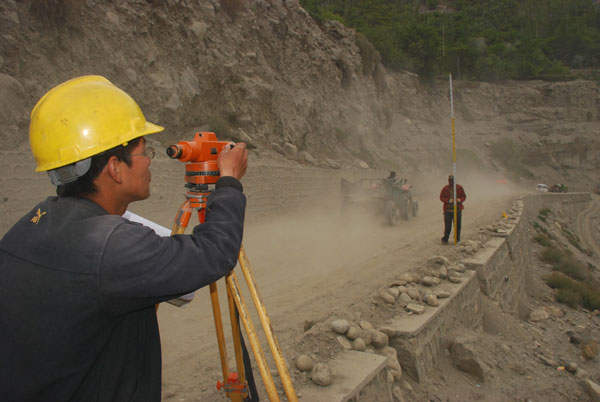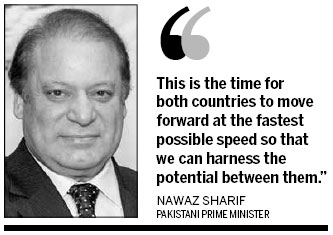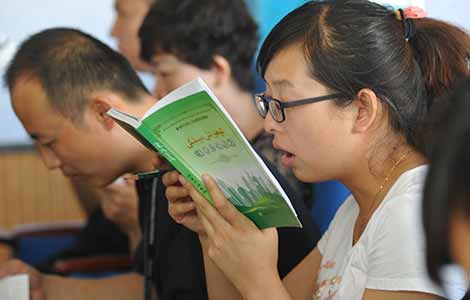Sharif eager to hasten cooperation
Updated: 2013-08-08 07:44
By Zhang Yunbi (China Daily)
|
||||||||
Pakistani Prime Minister Nawaz Sharif is eager to fast-track policies that will improve his country's cooperation with China, particularly in infrastructure, to revive Pakistan's economy.
"This is the time for both countries to move forward at the fastest possible speed so that we can harness the potential between them," Sharif told Chinese reporters.
 |
|
Surveyors from China and Pakistan measure the Karakoram Highway, which connects the two countries as a symbol of their friendship, on May 13 in northern Pakistan. Zhang Yong / Xinhua |
Infrastructure - including power and transportation - is the biggest bottleneck constraining the South Asian country, observers said.
Just one month after he took office in June, Sharif visited China from July 3 to 8 in his first overseas trip as prime minister. During the trip, he talked to several leading Chinese companies to seek more investment in Pakistan's infrastructure.
Both countries agreed to set up the Joint Cooperation Committee on the Long-Term Plan for China-Pakistan Economic Corridor, a huge transportation project that will stretch from Pakistan's Gwadar port to Kashgar in the Xinjiang Uygur autonomous region.
Sharif said the project is a "game changer" for the region.
"Who is in government, who come and goes - it does not make any difference, and the relationship and friendship keeps moving on, keeps strengthening," he said.
 |
The Cabinet also approved a plan of the National Development and Reform Commission of China and the Ministry of Planning and Development of Pakistan, two leading ministries of the long-term plan.
Sharif still faces uphill challenges pertaining to the country's infrastructure.
"Pakistan's economy is short of pillar industries, and the energy shortage has prompted its leading textile businesses to move to neighboring countries such as Bangladesh," said Hu Shisheng, director of the Institute of South and Southeast Asian and Oceanian Studies at the China Institutes of Contemporary International Relations.
The Pakistani prime minister is seeking cooperation with China to overhaul his country's economy, Hu said. "And the top mission of his five-year premiership is to establish an economic framework and pave the way."
Masood Khalid, Pakistan's ambassador to China, said bilateral trade has exceeded $12 billion in 2012, and the figure is expected to surpass $15 billion in 2015. Sandar Sher Baz Khetran, a research fellow of the Institute of Strategic Studies in Islamabad, said the Sharif Cabinet is "actually trying to create a bigger consensus" with China, and that consensus will bring major changes.
Sharif has pinned high hopes on the economic corridor and Gwadar Port, which China started operating in February, to improve transportation facilities in Pakistan.
"We expect that Gwadar is ready to become a very important economic hub, an important port, in the Arabian Sea, which is of course beneficial to China," he said.
- Pakistan approves economic accord with China
- China, Pakistan ink transport pact
- Pakistan seeks more investment
- China-Pakistan ties to get fresh vigor: premier
- FM: Li's visit highlights China-Pakistan bond
- Li's visit opens new chapter in China-Pakistan ties
- China supports Pakistan's growth
- China to step up investment in Pakistan
- China, Pakistan to deepen strategic co-op
Most Viewed
Editor's Picks

|

|

|

|

|

|
Today's Top News
US realty market 'connects dots' with China buyers
Pharm giant suspected of bribery
Economic prospects improved
Beijing rejects protest over patrol
China Unicom tests 4G network
Switching tactics in ambitious new move
Rare earths on shaky ground
More young adults living with parents
US Weekly

|

|












